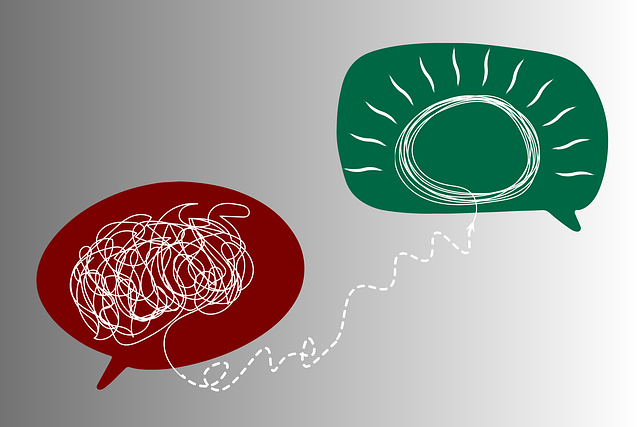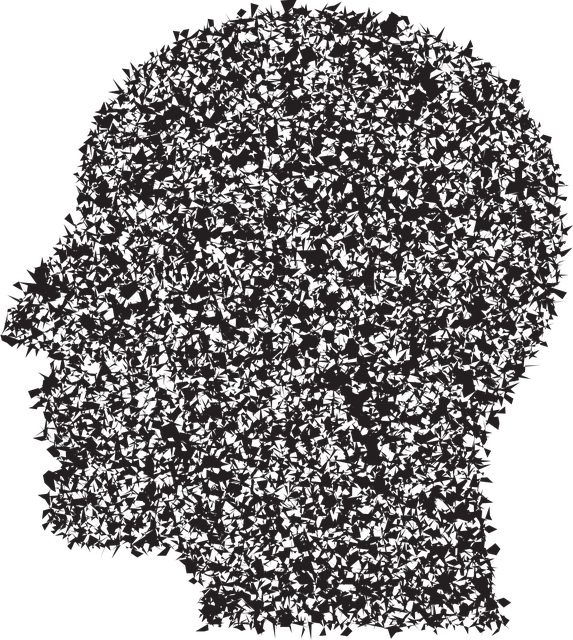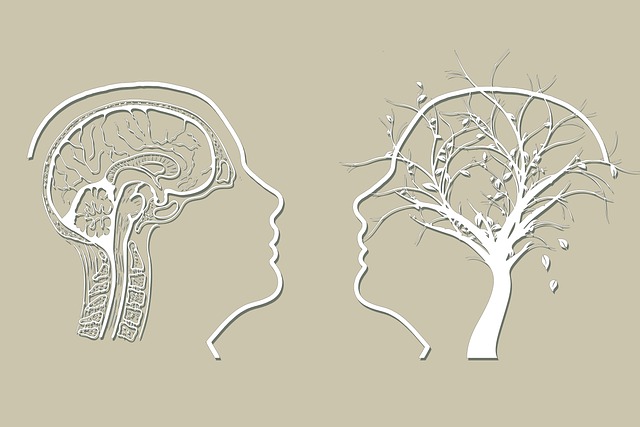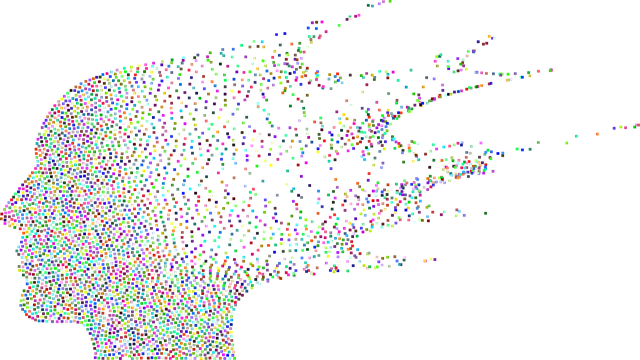The elderly population faces unique challenges with chronic pain impacting mental health due to age-related conditions like arthritis, fibromyalgia, and neurological disorders. Effective strategies require understanding the link between chronic pain and mental health, focusing on holistic therapy approaches such as self-care routines, mindfulness, and cognitive-behavioral therapy (CBT). Technology offers powerful tools for improving senior mental wellness through specialized apps that provide accessible therapy options tailored to elders' needs. These apps offer mood management, cognitive exercises, and support networks while enabling risk assessment for proactive interventions. Incorporating evidence-based practices like CBT, mindfulness, and relaxation techniques into digital therapy solutions ensures cultural sensitivity, progress tracking, goal setting, and conflict resolution mechanisms for a supportive environment. Balancing privacy protection, ethical considerations, and accessibility is crucial in developing mental wellness apps that cater to elders' chronic pain management while fostering better long-term mental wellness.
Mental wellness app development is revolutionizing senior care, particularly in managing chronic pain, a leading cause of disability among the elderly. This article delves into the intersection of technology and mental health, exploring how digital solutions can alleviate chronic pain’s impact on elderly well-being. We discuss evidence-based practices, privacy concerns, and ethical considerations to ensure effective and accessible therapy for elders chronic pain management. By harnessing technological advancements, we aim to enhance senior mental wellness and improve their overall quality of life.
- Understanding Elderly Chronic Pain and Its Impact on Mental Health
- The Role of Technology in Enhancing Senior Mental Wellness
- Designing Effective Digital Therapy Solutions for Chronic Pain Management
- Incorporating Evidence-Based Practices into Mental Wellness Apps
- Privacy, Ethics, and Accessibility Considerations for Elderly App Users
Understanding Elderly Chronic Pain and Its Impact on Mental Health

The elderly population faces unique challenges when it comes to chronic pain and its impact on mental health. As people age, they often develop conditions like arthritis, fibromyalgia, or neurological disorders that can cause persistent discomfort and limit mobility. This constant physical pain can significantly affect an older individual’s emotional well-being, leading to increased stress, anxiety, and even depression. Many elders struggle silently, and their mental illness may go undiagnosed or untreated due to the stigma surrounding mental health issues, especially among this demographic.
Understanding the intricate link between chronic pain and mental health is crucial for developing effective strategies. Therapy for elders with chronic pain should focus on holistic approaches, including self-care routine development to enhance overall well-being. By incorporating emotional healing processes, such as mindfulness or cognitive-behavioral therapy, into care plans, we can address the root causes of distress. Reducing the stigma associated with mental illness in older adults is essential, encouraging them to seek help and fostering open conversations about their experiences.
The Role of Technology in Enhancing Senior Mental Wellness

In today’s digital era, technology plays a pivotal role in enhancing senior mental wellness. Apps designed specifically for older adults offer accessible and personalized therapy options, addressing challenges like chronic pain through innovative solutions. These applications provide a convenient way for seniors to access mood management tools, engage in cognitive exercises, and connect with mental health support systems, all from the comfort of their homes.
Moreover, technology enables comprehensive risk assessment for mental health professionals by providing digital platforms to monitor and track senior patients’ progress. This, coupled with well-designed mental health education programs, allows for proactive intervention and improved care. By leveraging technological advancements, mental wellness apps not only support seniors in managing their chronic pain but also contribute to a holistic approach to mental health education and care.
Designing Effective Digital Therapy Solutions for Chronic Pain Management

Designing effective digital therapy solutions for chronic pain management requires a nuanced approach, especially when catering to elderly populations. Given the complex nature of chronic pain and its impact on mobility and quality of life, traditional therapy methods may not always be accessible or engaging for older adults. Digital platforms offer a promising alternative by providing personalized, convenient, and interactive treatment options tailored to their specific needs.
Apps designed for this purpose should incorporate evidence-based practices such as cognitive behavioral therapy (CBT), mindfulness exercises, and relaxation techniques known to reduce pain perception. Integrating cultural sensitivity in mental healthcare practice is also essential, ensuring the app resonates with diverse user backgrounds. Incorporate features that permit users to track their progress, set goals, and receive motivational reminders, fostering a sense of agency. Moreover, risk assessment for mental health professionals should be considered to mitigate potential harm, while conflict resolution techniques can enhance inter-app communication, creating a supportive digital environment for elders navigating chronic pain.
Incorporating Evidence-Based Practices into Mental Wellness Apps

Incorporating evidence-based practices into mental wellness apps is a critical step towards enhancing their effectiveness and user outcomes. These practices are backed by scientific research and have been proven to improve mental health, especially for specific populations like elders suffering from chronic pain. For instance, apps that integrate cognitive-behavioral therapy (CBT) techniques can help users manage stress, anxiety, and depression through tailored exercises and mindfulness activities. By focusing on evidence-based methods, developers create tools that not only offer immediate relief but also foster long-term mental wellness.
Self-care routine development is another key aspect where empathy building strategies play a vital role. Mental wellness apps can guide users in creating personalized self-care routines by incorporating practices like regular exercise, balanced nutrition, and quality sleep. Empathy-driven features that recognize and address individual challenges, such as chronic pain, can make these routines more accessible and sustainable for elders. This tailored approach ensures that mental wellness apps cater to diverse needs, promoting better overall well-being.
Privacy, Ethics, and Accessibility Considerations for Elderly App Users

When developing mental wellness apps aimed at elderly users, especially those dealing with chronic pain, privacy, ethics, and accessibility must be paramount. Elderly individuals may have unique concerns regarding their personal data, including sensitivity around medical history and symptoms. Developers must implement robust security measures to protect user information from unauthorized access or breaches, ensuring compliance with relevant data protection regulations.
Additionally, ethical considerations are crucial in this context. Apps should promote empathy-building strategies and mental illness stigma reduction efforts tailored to the elderly population. Features like personalized mood management tools can significantly benefit users but must be designed with care, respecting individual autonomy and providing transparent controls over data usage. Accessibility is another key aspect; interfaces should be intuitive and user-friendly, catering to potential visual or cognitive impairments often associated with aging.
Mental wellness app development plays a pivotal role in addressing chronic pain among the elderly, offering accessible and engaging solutions. By integrating evidence-based practices and prioritizing user privacy, ethics, and accessibility, developers can create effective digital therapy tools that significantly enhance senior mental wellness. These apps not only complement traditional healthcare but also foster better quality of life for older adults experiencing chronic pain.








